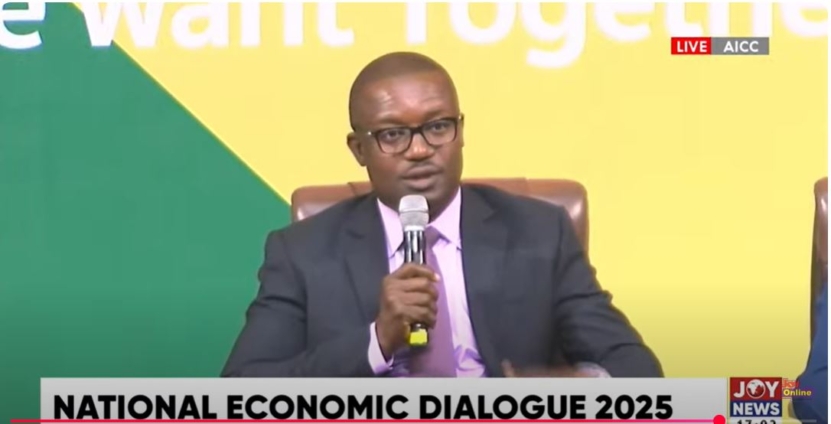Energy Minister John Jinapor has revealed that Ghana’s energy sector is grappling with outstanding liabilities of approximately GH₵80 billion, with the debt continuing to rise.
Speaking during Day 2 of the National Economic Dialogue, the minister warned that restoring the sector to stability would require clearing this massive debt burden.
“Today, the outstanding liabilities stand at about GH₵80 billion, and it keeps increasing. If we were to fully revive the energy sector, we would need to flush out this debt. Clearly, this situation is unsustainable,” he stated on Tuesday, March 4.
Beyond the existing liabilities, Mr Jinapor highlighted an even more concerning issue—the sector's monthly financial shortfall. According to him, “Our total bill, especially in the power sector, is about $170 million per month, but collections are less than $100 million. This means we are accumulating an additional $70 million in liabilities every month."
Mr Jinapor highlighted inefficiencies within the energy sector, citing financial indiscipline as a major concern. He noted that in 2023, the Public Utilities Regulatory Commission (PURC) approved $200 million as a capital expenditure cap for the Electricity Company of Ghana (ECG), but ECG ended up incurring $700 million, exceeding the approved amount by $500 million.
This excess spending, he explained, was not factored into the tariff structure, worsening the sector’s financial crisis.
The minister further emphasised the need for private sector involvement in managing the energy sector, warning that failure to do so could lead to its collapse.
He disclosed that some power producers have already shut down their plants due to non-payment of their bills, stressing that tough decisions must be made to prevent a total breakdown.
Mr Jinapor also called for an urgent transition from liquid fuel to gas for power generation, arguing that Ghana has stranded gas that is not being utilized, while the country continues to spend heavily on liquid fuel.
He revealed that the cost of liquid fuel this year alone is projected to reach $1 billion, whereas half of that amount could build a gas processing plant that would save the country $600 million annually. He maintained that constructing the plant is non-negotiable, as it would not only cut costs but also reduce corruption and waste in the sector.
Latest Stories
-
Ken Ofori-Atta listed on INTERPOL Red Alert over “using public office for profit”
35 minutes -
World Vision empowers health workers in Agortime Ziope with life-saving infection control training
36 minutes -
Plan International Ghana launches She Leads Social Movement to sustain girls’ rights advocacy
46 minutes -
Gov’t pledges action to empower girls, young women at She Leads Social Movement launch
54 minutes -
Environmentalists push for waste-to-wealth innovations on World Environment Day
1 hour -
GRNMA strike: Sick pockets can’t take care of sick patients – Ashanti GRNMA
1 hour -
Traders appeal for designated spaces after Accra decongestion
2 hours -
F1’s return to Africa: will legacy, ambition, or diplomacy win the race?
2 hours -
Thomas Partey headlines fourth edition of All Star Festival
2 hours -
World Environment Day: GJESHA urges media, gov’t to step up fight against plastic pollution
2 hours -
Yamal scores twice as Spain beat France in nine-goal thriller to make Nations League final
2 hours -
Nestlé Supplier Day 2025: Fostering collaboration for sustainable growth
3 hours -
Don’t risk progress with new reforms – IERPP cautions BoG
3 hours -
Planting for the Future: Forest clubs and tree planting drive to combat environmental damage
3 hours -
Over-concentration of resources in urban centres stifling national economic progress – Nii Moi Thompson
3 hours

